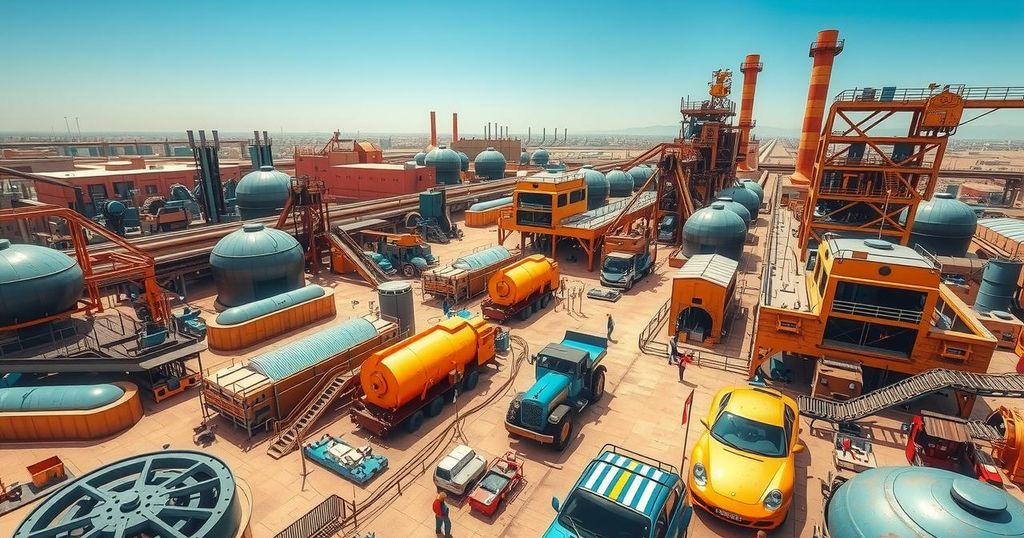Business
ADDIS ABABA, AFRICA, AND ECONOMIC DEVELOPMENT, CONFERENCE OF AFRICAN MINISTERS OF FINANCE, PLANNING AND ECONOMIC DEVELOPMENT, DEVELOPMENT, ECONOMIC GROWTH, ETHIOPIA, FINANCE, INTERNATIONAL COOPERATION, ME, MEZZOUR, MOROCCO, RI, RIYAD MEZZOUR, SUSTAINABLE DEVELOPMENT, UNECA
Fatima Khan
0 Comments
Morocco’s Trade Minister Highlights Industrial Acceleration Zones at UNECA Conference
Morocco’s Trade Minister showcased the country’s experience with industrial acceleration zones at the UNECA Conference, emphasizing the importance of infrastructure, management delegation, and export-oriented activities. The Moroccan model has gained recognition as a potential template for other African nations.
On Tuesday, Morocco’s Minister of Industry and Trade, Riyad Mezzour, shared the nation’s successful experience in creating industrial acceleration zones during the 57th UNECA session in Addis Ababa. He spoke at a round table focused on special economic zones in Africa, which was chaired by Morocco, and emphasized key factors contributing to this success. These include high-quality infrastructure and the delegation of management responsibilities to zone developers.
Minister Mezzour outlined that the effectiveness of special economic zones relies significantly on the complete delegation of state authority to developers. This delegation allows the developer to manage construction and economic activities while adhering to strict regulatory standards. Furthermore, this strategy aims to mitigate corruption risks, which can deter global investors and provide reassurance to them.
He illustrated the importance of infrastructure by mentioning a newly established factory in Morocco that consumes energy equivalent to a town of 500,000 residents and as much water as a town of 100,000. The Minister noted that his department allocates 40% of its budget to foster industrial infrastructure, which includes ensuring access to essential services such as electricity and water without needing investors to fund these utilities.
Mezzour emphasized that successful special economic zones must prioritize export-oriented industries, asserting that at least 80% of the activities in these zones should be directed towards exports. Additionally, he highlighted the necessity of quality Internet connectivity for the operations of businesses within these zones.
Participants at the round table acknowledged the achievements of Morocco in establishing industrial acceleration zones due to various infrastructural measures. They suggested that this Moroccan model could serve as a viable template for other African nations seeking to create special economic zones. Morocco has been elected to chair the 57th ECA Conference of African Ministers of Finance, Planning and Economic Development, with the Kingdom set to host the 58th conference in March 2026.
In conclusion, Morocco’s Minister of Industry and Trade, Riyad Mezzour, articulated the successful development of industrial acceleration zones at the 57th UNECA session. Key components of success include effective management delegation, high-quality infrastructure, and a focus on export-oriented industries. This Moroccan model presents a compelling framework for other African countries intent on establishing similar economic zones.
Original Source: www.maroc.ma




Post Comment